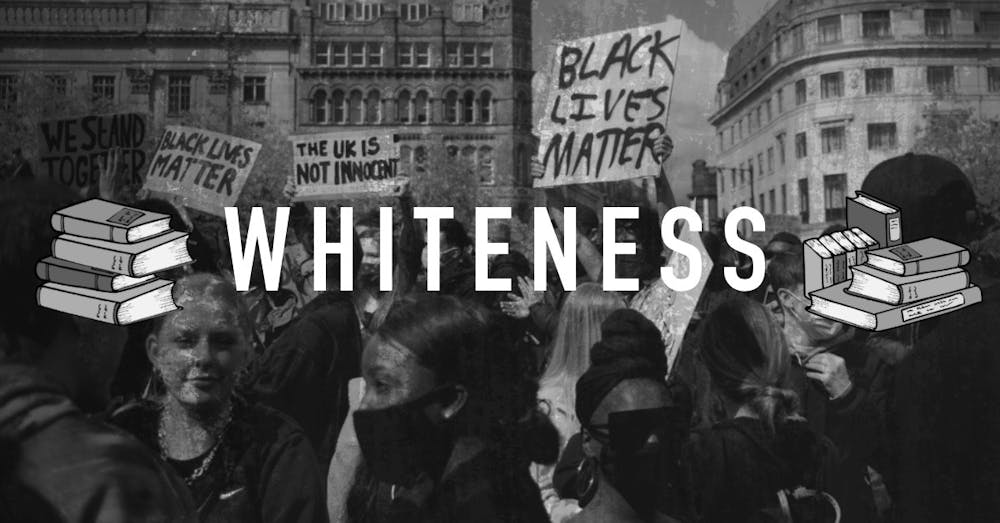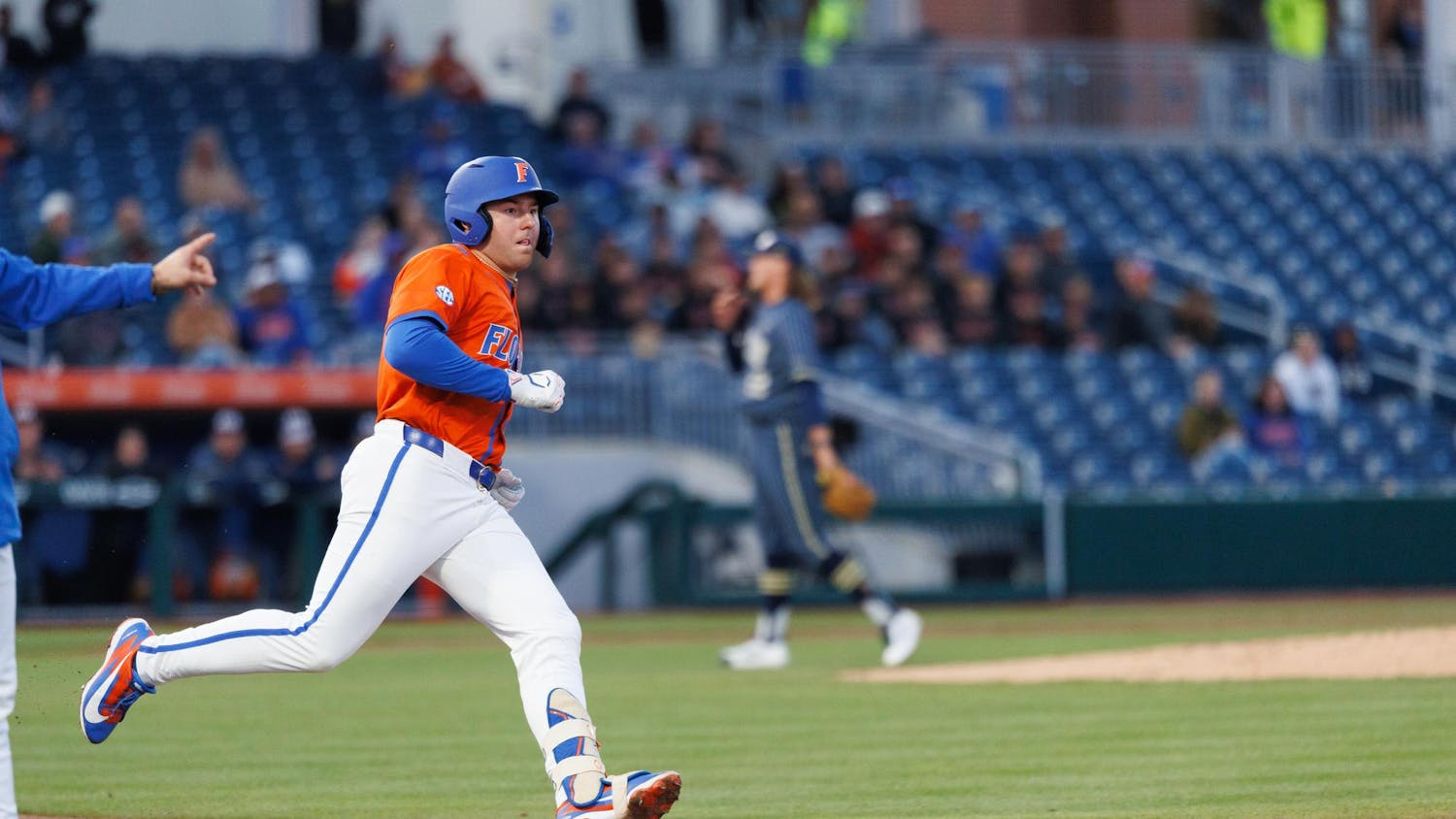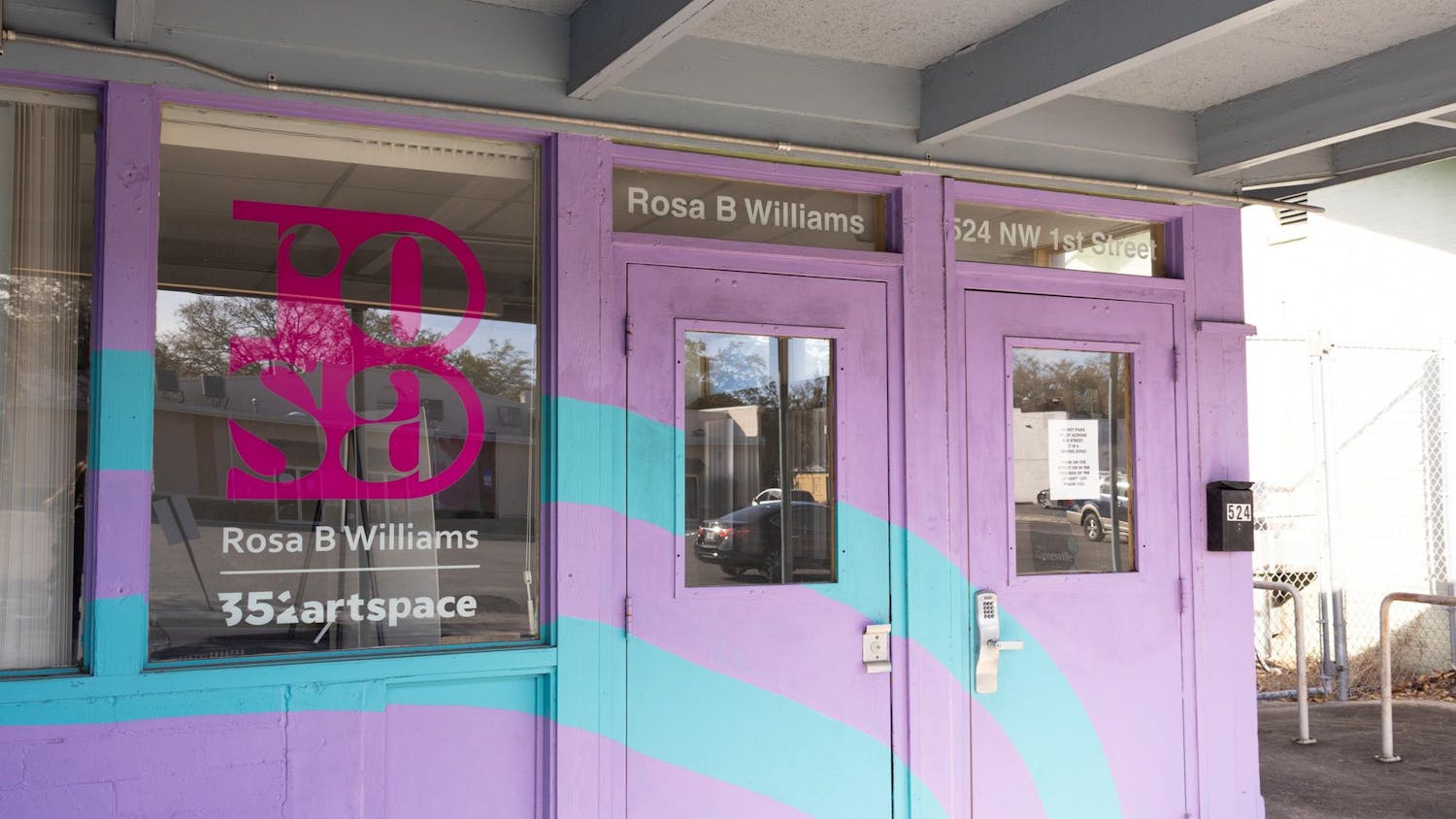Between the racial reckoning of summer 2020 and COVID-19 compounding racial health disparities, a UF professor’s new class on whiteness aims to foster discussion on racial issues.
UF professor Lance Gravlee created a class this semester called Whiteness in response to the racial injustice protests in 2020 over the killings of Ahmaud Arbery, Breonna Taylor and George Floyd. He said the unequal impact of COVID-19 across racial lines also inspired him to create the class.
The class examines the historical, political-economic and sociocultural context of whiteness, according to the syllabus. While whiteness can be defined in various ways, it’s important to distinguish it from white people, Gravlee wrote.
“Whiteness isn’t just a social identity,” he wrote. “It’s a structuring principle of society that sustains white supremacy and racialized oppression.”
Gravlee has taught the Race and Racism course in the College of Liberal Arts and Sciences every Fall since 2005. Like Race and Racism, Whiteness addresses racial issues, he said, but it’s more narrowly focused on the concept of whiteness.
Whiteness is also geared to be an advanced undergraduate seminar, rather than a 3000 level lecture style class like Race and Racism, to foster critical discussion and debate and give everyone a voice, Gravlee wrote.
“It would be difficult to examine whiteness critically if the only voice in the classroom were that of the white, male professor,” Gravlee wrote. “To facilitate critical thinking, openness, and intellectual growth, it’s important that all participants in the seminar share responsibility for meaningful learning, and that means resisting common modes of teaching that impose hierarchy and centralize authority.”
Insight into race is important because it reveals the extent to which most white people don’t experience race and racism in everyday life, Gravlee said. While race and racism shape the experience of white people in everyday life, most feel they exist at a safe distance from such problems. Many even become defensive when confronted with the idea that they feel unaffected by race and racism in everyday life, he said.
“The process of being defined in terms of race doesn’t just affect Black people and other people of color,” Gravlee said. “It’s always in relationship to whiteness, and so that’s part of what we’re exploring.”
Students should think critically about how the experience of being racialized as white is also a consequence of living in a society that is rooted in white supremacy, he said. He wants students to see not only how Black people and other people of color are harmed by racism but also how white people benefit from racism.
However, Gravlee clarified the class isn’t just about white people.
“It’s about a broader political and social system,” he said.
Gravlee said at about 30 institutions like Princeton University and the University of California at Los Angeles, there’s been controversy around courses related to whiteness, but he doesn’t think it should be a controversial topic.
“It should be one that’s open to critical discussion and debate and should be grounded in a broad interdisciplinary study,” he said. “So, that’s what we’re trying to do.”
Gravlee will likely offer a course on whiteness again, but he can’t say how often or if it will become a regular part of the catalog, he wrote in an email.
“It’s a new course for me, and the things students and I are learning along the way will surely inform my future teaching,” he wrote.
Gravlee’s class will be helpful in combating racism and educating students on white privilege, UF professor Rik Stevenson said.
Stevenson, who is teaching Race, Religion and Rebellion and an African-American Studies Senior Integrative Seminar this Spring, said the class can teach students about how race and power are interconnected.
“I think it has the potential to bring to the forefront the importance of understanding that racism is about systems, but race is about power,” Stevenson said. “When we begin to segregate people based by race, there are some people who simply receive a normalcy of power just because of their skin color.”
Melissa Miliam, a 22-year-old UF anthropology senior, said she decided to take Whiteness online this Spring because she enjoyed Race and Racism with Gravlee and wanted to learn more about the topic.
“I want to continue my education about race, and Whiteness seemed like the perfect class to do so, especially because whiteness is at the core of American society and history and it’s a great way to unpack my own whiteness and understand how it connects to racism,” she said.
Miliam said what she likes most about the class is the environment and the values it instills, including active listening.
“So not just listening to find an argument against someone, but listening to really understand where they’re coming from and their own experiences and their own understandings,” Miliam said.
Whiteness is important to Miliam because as a pre-med student, she wants to work in health, where there are issues with implicit biases and health inequities based on systemic racism.
“Understanding that and knowing about these socioeconomic and political contexts will help me be a better doctor and a better member of society as well,” Miliam said.
Contact J.P. Oprison at joprison@alligator.org. Follow him on Twitter @joprison.

JP is a fourth-year journalism major with a minor in history. He is currently the health reporter for The Alligator, focusing on how the pandemic is affecting Alachua County and the thousands of students in Gainesville. In his free time, JP likes to exercise at the gym and relax on the beach.






